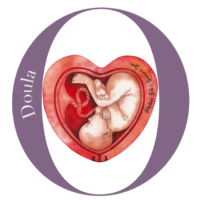With Canada to the north and Texas to the south, I cannot help but see the parallels of recent experiences that two families endured.
Two mothers, both pregnant, both alive physically but neither alive medically.
Both hospitals used medical technology to sustain the physical life of the mother in an effort to continue the pregnancy.
To the south, though, the Munoz family did not desire this.
And to the north, the Benson family, did.
The language in the media, though, is very important in both situations.
In the Munoz situation, the baby wasn’t named, at least not publicly. The stories intended to paint the hospital as a weird science lab spoke of the father’s right to move on. They never mentioned the older brother and what he might feel like, both now and in the future. The stories focused on the benefit of the baby physically dying. Never on the fact that at the time, the baby was in every sense and in every way, very much alive. Talk of a difficult diagnosis or negative impact of any oxygen deprivation was painted in such a way as to further dehumanize the person of the baby. Nobody talked about what fears Mr. Munoz may have that his efforts to restore consciousness to his wife may have injured his baby. Nobody talked about the guilt, dread, or fear Mr. Munoz may have. The message was clear: this baby is already dead. Let the situation close. Let the man move on. And so, pro-lifers who talked about shaming the dad and pro-choicers who talked about the man moving on all know now that the baby’s days in utero were spent with the world debating over the time of death rather than tangibly validating with word and action that at the time, the baby was in every sense very much alive. And that this time of hushed whispers of fate ended as the baby suffocated inside his mother. Because the media addressed the way in which the mother would be in every sense not alive – and didn’t address the way in which this decision would impact the living baby inside.
What about this widow? To those who thought that he could finally move on now, I strongly tell you that this is not true. This journey, for him and his surviving son, are only just beginning.
And to the north, the family who faced such a similar situation, and who wanted to sustain the pregnancy and hold a living baby. What was life like in-utero for baby Benson? Was it different than life in utero for baby Munoz? Were either baby sung to? Did either baby feel the hands of his father atop his mothers growing womb?
While the rest of the world debates over what the right actions are regarding when to end a pregnancy when the mother is not in every way alive, my heart is so full for those moments when the decision hasn’t been made yet. That is truly my only focus. I do not at all have a political or even a religious stance regarding the timing of the decision. In those weeks, days, even fleeting moments when others are arguing over the definition of life, my heart fills to the very brim to honor the life that is there.
If the baby is born alive, or if the baby dies, I yearn earnestly to offer life to the fullest in the moments that are given. So much is already lost in a situation like this, we don’t have those moments to spare.
- Support for the family is essential. Support that isn’t outcome influenced.
- Support for the care team is essential. Support that isn’t outcome influenced.
- Support for the baby is essential. Support that isn’t outcome influenced.
Honoring each person’s feelings who are involved in the situation. Capturing moments. Validating their questions, anxieties, fears. Listening to their hopes.
Name the baby. Read to the baby. Sing to the baby.
Psychobiologists tell us that babies in utero have an amazing sense of smell. Eat a meal at the bedside of the mother. Maybe her favorite dish. Let the aroma travel through the placenta and as the baby receives the smell, speak of the mother’s favorite things.
Grieve for the beloved woman who is not in every way alive. Touch her. Rub oils over her belly as a way to grieve her and as a way to connect with the baby, creating a rocking sensation that is otherwise lost to the baby.
Besides the substantially important aspects of the man’s grief, we simply do not know with certainty, this side of media reports, that creating a connection in this way isn’t at all responded to, even by the mother. Let me say this another way. Oxytocin is a bonding hormone that travels from the pituitary and serves as a messenger of love directly from the mother to the baby. It is a hormone released in her bloodstream during pregnancy. It is released in response to physical as well as emotional and psychospiritual comfort. And medical research has not disproven the possibility that even in a prolonged coma, a mother may still release oxytocin in her bloodstream. I’m not involved in the medical research. I don’t proclaim to know everything about it. But, here’s what I’m saying. What if, just, what if, a man stroking his wife’s belly, talking to his baby within, not only creates a communication between father and baby, but what if, even in the middle, the silent mother releases oxytocin, sending her own messages of love to her baby?
We must not get so focused on defining death that we fail to honor all potential for life, however vague, however undefinable, even, however brief. Because even if the baby dies, we can fill in those fleeting moments with dignity, with honor, with validation, so that the family’s journey afterward is filled with the highest potential for uncomplicated healing.
If nothing else of these thoughts here are considered, in both of these situations and in any others like them, we do such a terribly horrendous disservice to the fathers involved when we focus entirely on how the baby should die or if the baby should die, even when we think we are focused on this to his benefit. Fathers matter. Fathers count. Fathers can bring life. Fathers need more than the right to define or time death. They need the right to their fullest dignity, their fullest opportunities, their fullest love, their fullest healing. No matter what.
What if the silent mother can still send messages of love to her baby? What if the dad can create a relationship with his baby? Regardless of time or definition of death, what if we can bring more life? More love? More healing?












